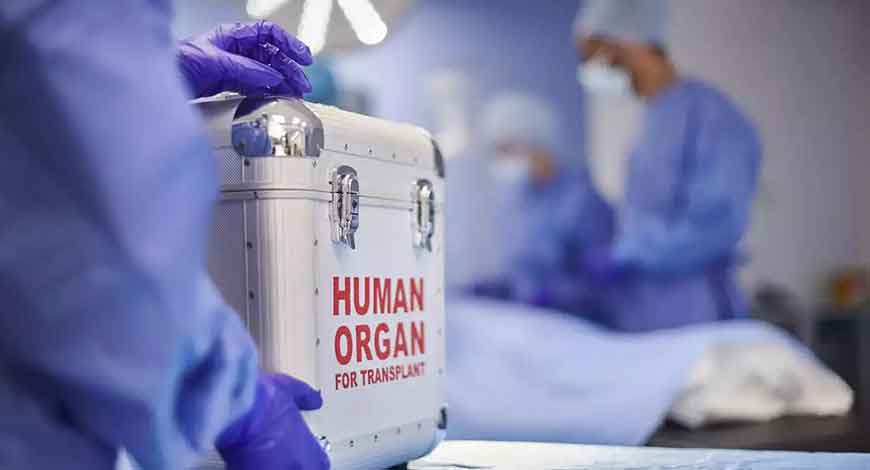The US Food and Drug Administration (FDA) recently warned four medical device makers for violations of good laboratory practices (GLP), current good manufacturing practices (CGMP), and for marketing a product without proper approval.
Chinese medical device company Jiangsu Kerbio Medical Technology Group was cited for failing to follow good laboratory practice (GLP) requirements in nonclinical studies, including guinea pig maximization sensitization (GPMT), acute systemic toxicity (AST), rabbit pyrogen, muscle implantation, hemolysis, and cytotoxicity tests. The company, which conducted nonclinical testing for medical devices, said it would cease FDA-related nonclinical testing for at least three years.
FDA investigators argued that the study director of the nonclinical studies failed to ensure that study protocols were approved, experimental data were accurately recorded and verified, and all GLP regulations were followed. They note that raw data from daily animal observation were not collected in certain studies as required.
The investigators also listed instances where personnel were recorded doing two activities simultaneously or using the same equipment for multiple uses, which they argue is implausible. They also noted that personnel were caught filling in records after the fact.
“On January 21, 2025, one of the FDA investigators directly observed study personnel, [redacted], retroactively completing records for an ongoing subacute systemic toxicity study, [redacted], including clinical observations and animal weight data from Day 1 of the study up to Day 26 [redacted] of the study,” said FDA. “When asked to provide documentation that animals for this study were weighed, the records provided later that day showed that the animal weight data were incomplete as week 2 only included 5 out of 20 animal weights, and there were no weights recorded for week 3 which should have been completed on [redacted].
“Failure to accurately record and verify experimental data as per the study protocol undermines the integrity and reliability of the study,” the agency added.
FDA investigators were especially concerned with the study director’s lack of management to ensure that studies were conducted, and data were collected according to protocol.
“When the protocol is not followed, data is erroneously recorded or analyzed, or other unforeseen circumstances occur that negatively affect the data, important findings in the study may be overlooked and the data cannot be accurately interpreted,” said FDA. “Failure to follow the protocol impacts the quality and reliability of data contained within the final study report.
“This adversely impacts a manufacturer’s and FDA’s ability to assess the overall safety and risk of the subject device prior to use in humans as a marketed device or for the purposes of beginning clinical trials, as applicable,” the agency added.
Based on the GLP failures, the FDA expressed concern about the quality and integrity of the data generated from the nonclinical laboratory studies and their impact on the company’s premarket submission.
FDA also cited Jiangsu Kerbio for failing to develop proper procedures to handle test and control articles and added that its Quality Assurance Unit (QAU) failed to properly inspect each nonclinical laboratory study to ensure they followed protocol.
“A reliable QAU is integral to the successful understanding and completion of any GLP study,” said FDA. “Without appropriate QAU oversight, neither the sponsor nor FDA reviewers have assurance that the data in the final study report are accurate and valid.
“Failure to perform QAU functions, such as monitoring studies to ensure protocols were followed and data are accurately recorded, over the course of multiple studies also calls into question the quality and integrity of studies conducted at your testing facility,” the agency added.
CGMP violations
Two Massachusetts-based companies, LeMaitre Vascular and Miach Orthopaedics, and Australia-based Uscom, were all cited for CGMP violations.
LeMaitre was cited for failing to maintain procedures to prevent equipment contamination that could potentially affect the final product. More specifically, the company was told its procedures for handling water were inadequate to prevent contamination. It was also cited for failing to maintain procedures to control environmental conditions adequately, control process parameters for validated processes, and validate corrective and preventive action (CAPA) incidents.
Similarly, Miach was warned for failing to maintain procedures to monitor and control process parameters for validated processes and products that don’t conform to specifications. The company was also cited for failing to maintain procedures to ensure that design requirements for its products are being met and that proper steps are taken when the results of a process can’t be fully verified.
Uscom, too, was cited for CGMP violations because it failed to maintain device design validation and CAPA procedures. FDA listed several instances where the company failed to adequately investigate nonconformities related to its products, processes, and quality system.
Reporting violations
In addition to the CGMP violations, LeMaitre was cited for failing to report corrections and removals of its Artegraft Collagen Vascular Graft devices.
“Your firm distributed [redacted] grafts from lot 23DD203 manufactured using raw material Bovine Carotid Arteries control number [redacted] from a non‐approved supplier, one of which was implanted in a patient,” said FDA, noting that the firm recalled the devices sometime after 23 June 2023.
“Since the product was released prior to completion of the [redacted] evaluation, as required by your firm’s procedure, and without notifying the FDA of the change in the supplier of critical materials for a Class III device, this lot of material is violative,” the agency added. “Graft devices manufactured using raw material from an unapproved supplier could have compromised sterility or mechanical integrity, which may present a risk to health such as infection, aneurysm, pseudoaneurysm, rupture, or mechanical failure at the anastomosis leading to bleeding or explantation of the failed device.”
Miach was also cited for failing to maintain proper medical device report (MDR) procedures. FDA said the company did not have internal systems to ensure MDR data was recorded, reviewed, and submitted promptly. Furthermore, the agency said it failed to report adverse events within 30 calendar days as required.
Unapproved device
Uscom was cited for marketing its SpiroSonic AIR without first obtaining a premarket approval (PMA) or submitting a new 510(k). The agency noted that it currently has clearance for a different spirometer device called SpiroThor, which is also marketed as mSpiromteter or mSpiro, and is used for lung function tests in laboratory settings. The agency noted that the company has submitted premarket notifications for the SpiroSonic Air and other spirometers that are significantly different from the SpiroThor and raised concerns about their safety and functionality.
“On August 16, 2022, FDA issued a Request for Additional Information Letter (AINN), explaining that FDA reviewed your K220982 submission for SpiroSonic AIR and several other spirometer devices, and determined that additional information was required,” said FDA. “The AINN letter explained that your response was due within 180 days from the date of the request and that FDA would consider the submission withdrawn and delete it from FDA’s review system if a complete response was not received by that date.
“Your firm did not respond to that letter. Accordingly, on February 14, 2023, FDA sent you a Close-Out Letter, entitled ‘Deletion of Submission for Lack of Response to Additional Information Request,’” the agency added. “The letter explained that FDA considered your K220982 submission to be withdrawn and that it had been deleted from FDA’s review system.” RAPS.org









